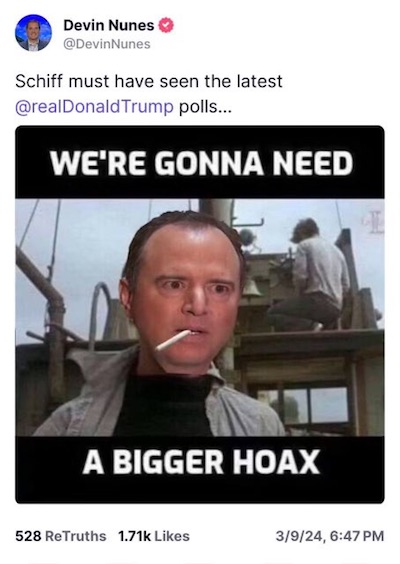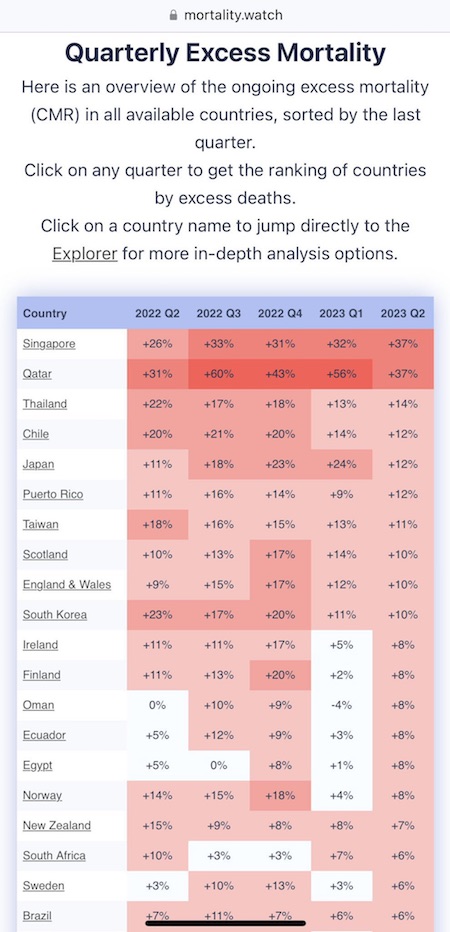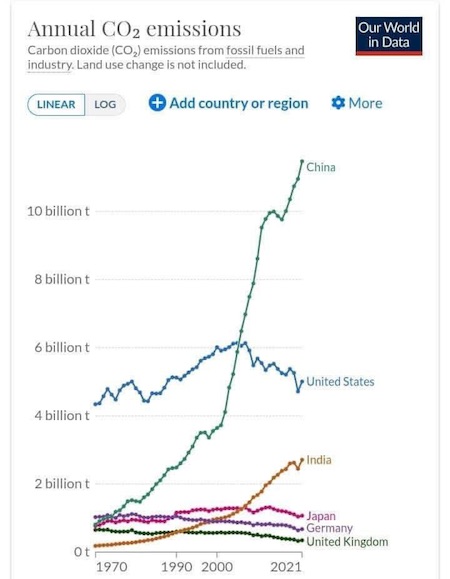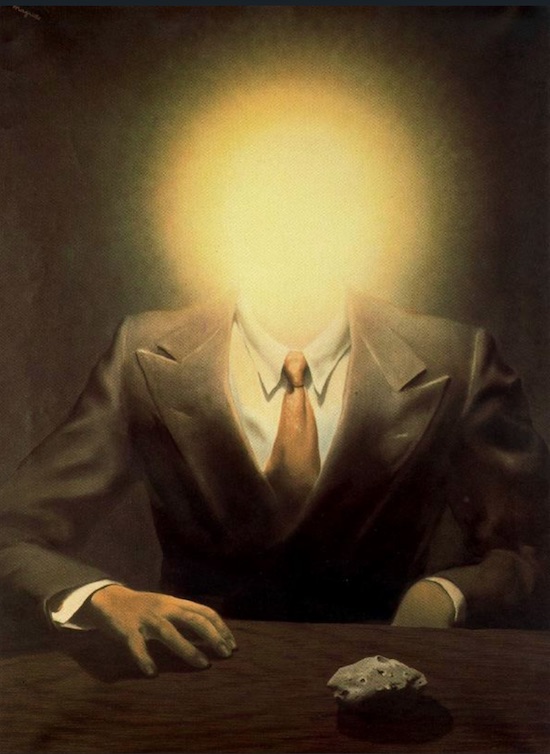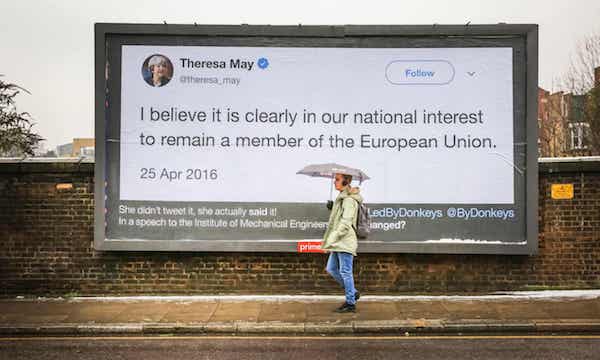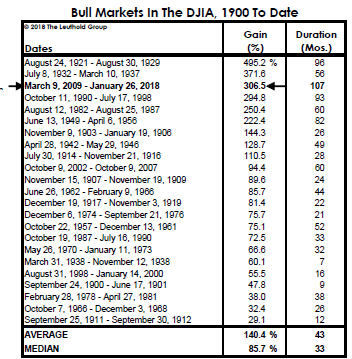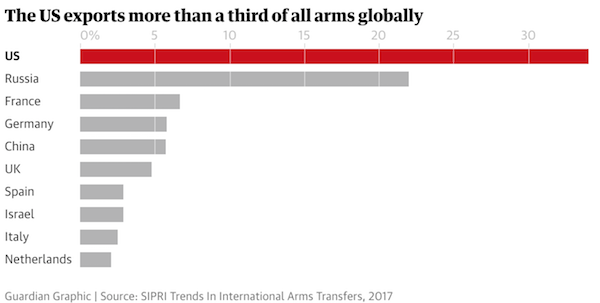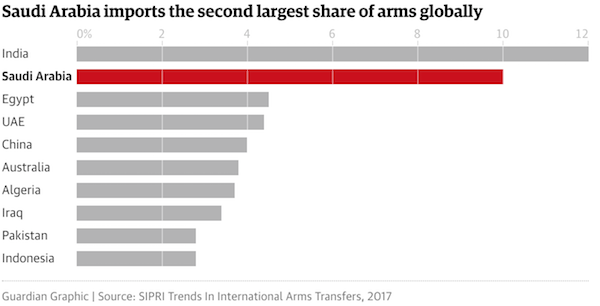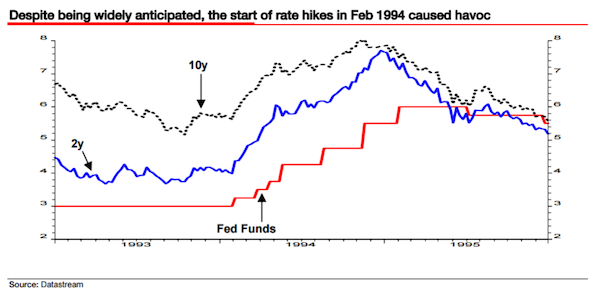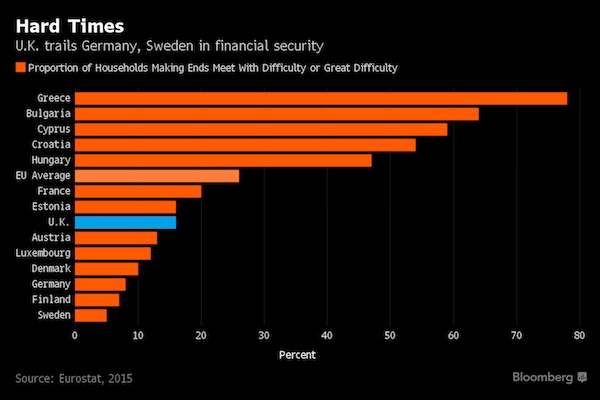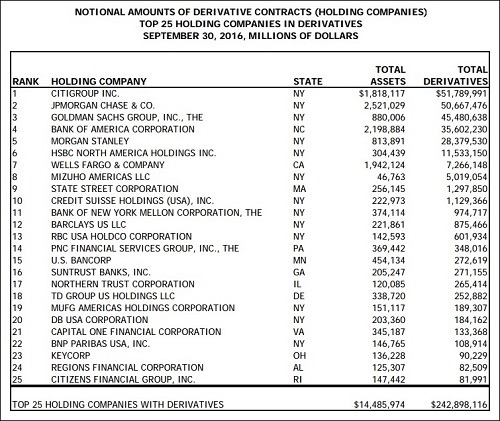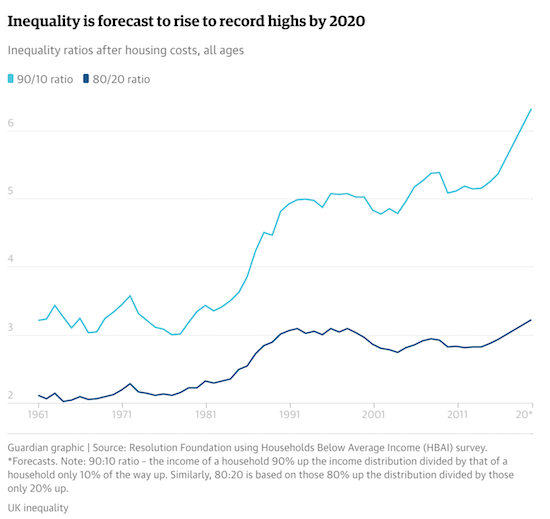
Gustav Klimt The Park 1909

Still trying to understand this.
https://twitter.com/i/status/1782508137582608427
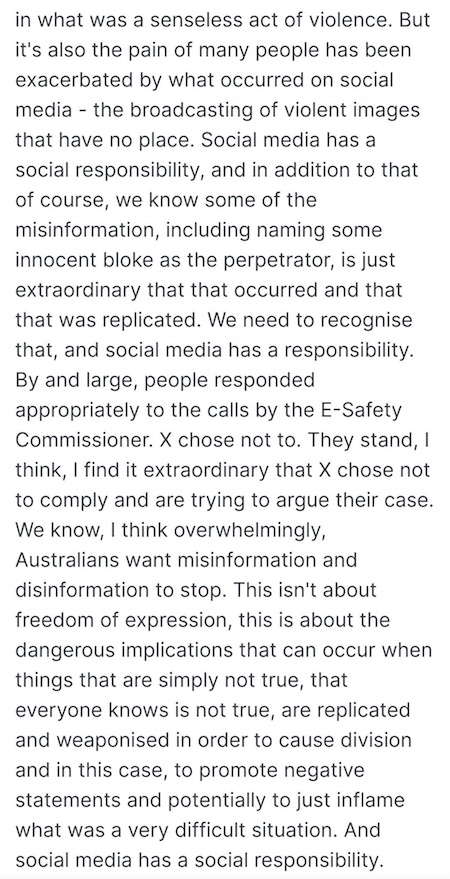

Bannon
https://twitter.com/i/status/1782461540442263664

Something Amazing is Developing with this Presidential Immunity SCOTUS Case…
Mike Davis:
— Can the Trump 47 Justice Department charge Obama for Capital Murder for murdering 2 Americans in a drone strike?— Can the Trump 47 Justice Department charge Biden for the illegals… pic.twitter.com/nY5prLt40k
— MJTruthUltra (@MJTruthUltra) April 23, 2024
Something Amazing is Developing with this Presidential Immunity SCOTUS Case…
Mike Davis:
— Can the Trump 47 Justice Department charge Obama for Capital Murder for murdering 2 Americans in a drone strike?
— Can the Trump 47 Justice Department charge Biden for the illegals pouring into the US, and their resulting crimes?
What to do? What to do? Trump says he should have “ABSOLUTE Immunity” . “Absolute” is the key word here… As it stands, the Constitution does say a President has Absolute Immunity from many lawsuits (not all)… BUT…. Trumps case is under legal dispute to determine whether or not a President has immunity from CRIMINAL Liability or Prosecution. No President in history has ever been charged for a crime, as the Constitution currently stands. A major precedent will be set with this SCOTUS ruling this Thursday… I believe this ruling may be closing some loopholes to go after others.. The wordage is going to be very very important.

Tulsi Kamala 2019
Yesterday Kamala Harris was community noted for saying she’s against jailing people for marijuana when she built her career doing just that. In an anti-truth effort, the note was removed. So here is Tulsi Gabbard going hard on Kamala’s record back in 2019pic.twitter.com/jOiOWnYgAD
— The Redheaded libertarian (@TRHLofficial) April 22, 2024

Tucker Ukr
Ep. 97 Bob Amsterdam is an international human rights lawyer who’s been banned from Russia by Vladimir Putin. He says Ukraine is the single most repressive country he’s been to. “The idea it’s a democracy is a farce.” Once again, they’re lying to you and making you pay for it. pic.twitter.com/hrLVZg4EFn
— Tucker Carlson (@TuckerCarlson) April 22, 2024

Zel
Zelensky is a fraud, backed by a brutal Gangster Oligarch. The Actor turned President is just that, an Actor
His "role of a lifetime" is now a Nightmare for his people who desperately elected him to bring Peace and an end to Corruption.
The Dictator brought more of both. pic.twitter.com/A6b4hnG6Cs
— Chay Bowes (@BowesChay) April 22, 2024
Zel 2006
Did you know that in 2006 Ukrainian President Volodymyr Zelensky won the Ukraine TV Competition – Dancing with the Stars?
Then the US Coop in 2014 in Ukraine happened & he became President
The US Congress just approved another $60,000,000,000 to this man
The entire World is a… pic.twitter.com/AmlvkktQIR
— Concerned Citizen (@BGatesIsaPyscho) April 22, 2024

Founding Fathers
I did not know this.
Did you. pic.twitter.com/z6Iohh6F1u— Jeff pontz (@827js) April 22, 2024


“…in one hour, that judge and the attorney general realized they had no idea what they were talking about… and we came to an agreement that everything would be the same…”
• Alina Habba Rages As Judge Approves Trump’s $175 Million Bond (ET)
Former President Donald Trump and New York Attorney General Letitia James reached an agreement on April 22 regarding his $175 million bond in his New York civil case, imposing additional restrictions while resolving concerns about the funds’ security. The attorney general argued that Knight Specialty Insurance Company (KSIC) lacked a “certificate of qualification” and that President Trump still had access to the Charles Schwab account pledged to the insurer as collateral. Judge Arthur Engoron accepted the April 22 agreement, which gave KSIC exclusive control over the account. The state made the offer after Chris Kise, President Trump’s attorney, provided oral argument. The attorney general established five bond conditions this morning that allow President Trump to use a non-New York company as a traditional license surety to cover the $175 million he was ordered to pay.
KSIC is unauthorized by the New York Department of Financial Services, which bond experts have said is a victory for President Trump. “[The company] is probably charging Trump less and they accepted a pledge rather than actually receiving $175 million in cash,” Bruce Lederman, a commercial and real estate litigator who has dealt in bonds for more than 40 years, said. All of President Trump’s attorneys agreed to the settlement stipulations, which are expected to be memorialized by the end of the week. The five bond conditions include retaining the collateral in a Schwab account and restricting KSIC from trading or withdrawing any of the funds for anything other than payment of the bond. “The state was not looking to be vindictive,” Mr. Lederman told The Epoch Times. “They are looking simply to be guaranteed that they are geting paid if they win the appeal, and they were sufficiently satisfied that if these five conditions were met, they would get paid.”
[..] President Trump defended the bond outside the courtroom at his criminal trial. “We put up cash and the number is 175,” President Trump said. “She shouldn’t be complaining about the bonding company. The bonding company would be good for it because I put up the money. I have plenty of money to put up.” After the hearing, President Trump’s lawyer in the case, Alina Habba, fumed at the judge’s incompetence, “he doesn’t even understand basic principles of finance,” and at AG James’ “this is where your taxpayer dollars are going America…witch hunt after witch hunt after witch hunt…” Habba continued to excoriate the whole farce: “…in one hour, that judge and the attorney general realized they had no idea what they were talking about… and we came to an agreement that everything would be the same…”
Alina Habba in the last hour.
This is hilarious.
Judge Engoron doesn't even understand Money Market funds.
Agreement reached on Trump $175 million bond.pic.twitter.com/CJwUR04VNl
— Citizen Free Press (@CitizenFreePres) April 22, 2024

“The media have called this case a “hush money” case, but one of our crafty commenters called it the Hush Trump case. Touche’.
• Will Trump Testify? (Victoria Taft)
Will Donald Trump testify at his New York City at the Hush Trump bookkeeping trial? Testimony is underway in the trial of former President Trump, who is charged with a bookkeeping issue of misreporting payments in 2017 as legal fees instead of campaign expenses. His overarching crime, by the Manhattan district attorney’s lights, is a federal election crime, which boils down to Trump stealing the 2016 election. Hillary Clinton won New York in 2016 by a nearly two-to-one margin, so clearly this trial is on the up-and-up. Manhattan District Attorney Alvin Bragg dredged up this trial from the dead after federal elections officials and the previous DA as well as Bragg himself declined to bring this case years before. But after Biden’s DOJ parachuted in a Trump specialist attack dog to go after the former president, the Democrats decided to throw everything against the wall to prevent him from being reelected.
Former Trump Attorney General Bill Barr, who can’t stand the former president, calls this case an “abomination… obviously political …and a real threat to liberty.” Better late than never, Bill. He’ll be out with his 2020 observations by, hmmm, let’s say next year. The witness list is out, and the first person to take the stand in this non-televised drama will be the former publisher of the National Enquirer, who paid porn performer Stormy Daniels money for exclusive rights to her story and then killed it. That’s not a crime, but it will dovetail nicely with the prosecution’s index horribilis that they will use as distractive chaff from this “abomination.” The Enquirer paid Daniels $150,000 while Trump’s lawyer, Michael Cohen, who will also testify, paid her $130,000. Trump personally paid Cohen for his legal activities by more than doubling the amount and giving him a $60K spiff for his legal services.
This is the “crime” for which Trump is dragged through the courts. Since it has been, as the lawyers like to say, “bootstrapped” to an unspecified federal elections crime (which the feds said wasn’t a federal elections crime) it has suddenly gone from a civil case to a criminal case. Robert Costello, Cohen’s former attorney, will testify for the defense, according to the witness list. Trump is not on the witness list, but a defendant can always decide if he wants to testify during the trial. Trump has told the world he will testify. “I don’t know, I’m testifying. I tell the truth. I mean, all I can do is tell the truth,” he said recently. “And the truth is,” he continued, “that there’s no case, they have no case.” Last week he answered “yes” when a reporter yelled the question as he entered the Manhattan courthouse. One of Trump’s appellate attorneys, Will Scharf, told CNN recently that he thinks if he decided to testify Trump would do well. “If the jury decides based on the facts and the law, there’s no way President Trump can be convicted,” he said. Scharf says Trump “would be a compelling witness” if he chooses to testify.
In the E. Jean Carroll defamation trial, Trump testified for less than four minutes. One can imagine the cross-examination of Trump by prosecutors using the list of bad acts that have nothing to do with his case, getting him flustered and angry and showing the jury what a bad guy he is. Trump can be cool and calm, but they’ll do everything they can to rattle him on the stand, obviously. The media have called this case a “hush money” case, but one of our crafty commenters called it the Hush Trump case. Touche’. When a judge shuts up the defendant but not the other trial participants you can’t help but wonder if the fix is in. Where else will you read that in this censorious media world that we’re living in?
Trump attorney Will Scharf says Trump "would be a compelling witness" if he chooses to testify:
"If the jury decides based on the facts and the law, there's no way President Trump can be convicted." pic.twitter.com/stMpN0jRZK
— Citizen Free Press (@CitizenFreePres) April 16, 2024

“His entire financial livelihood depends on President Trump’s destruction,” he said of Mr. Cohen. “You cannot make a serious decision about President Trump relying on the words of Michael Cohen.”
• Trump Urges “Peaceful Protest” As Day 1 In Hush-Money Case Ends (ZH)
Day one of former President Donald Trump’s so-called “hush-money” trial concluded early on Monday after Judge Juan Merchan said that an alternate juror can visit a dentist appointment (despite previously telling Trump he would have attend every day without fail – missing his son’s graduation – or face jail). Judge Merchan had previously planned to adjourn the trial at 2 p.m. ET due to the Passover holiday. But he said Monday that it would adjourn at 12:30 p.m. He previously said he would end at 2 p.m. on Tuesday for the holiday. Jack Phillips reports, via The Epoch Times, that the early adjournment came after prosecutors and defense lawyers make their respective cases for why the former president should be convicted or acquitted. In the case, President Trump is accused of falsifying business payments during the 2016 campaign by allegedly paying a former lawyer, Michael Cohen, to bury negative stories.
At issue were claims from an adult film performer, Stormy Daniels, whose real name is Stephanie Clifford, that she was engaged in a relationship with the former president. President Trump has denied her claims and has pled not guilty. An attorney for the former president spoke to the jury, asking them to “use your common sense” when they assess the case. “We’re New Yorkers. It’s why we’re here,” Todd Blanche said. “There will be a very swift not guilty verdict” if they decide based on the evidence involved, he said. “You told all of us, you told the court, you told me, you will put aside whatever views you have of President Trump,” Mr. Blanche told the jury as he wrapped up his arguments. “The 34 counts, ladies and gentlemen, are really just pieces of paper,” Mr. Blanche said of the indictment. “None of this was a crime.”
Mr. Blanche was critical of Ms. Clifford, saying that she has earned income and fame from her allegations about an alleged affair that occurred in 2006. “She also wrote a book. She was paid for a documentary,” Mr. Blanche says of Ms. Clifford, adding that courts have sided with President Trump’s legal disputes with Ms. Clifford. As for Mr. Cohen, Mr. Blanche accused him of profiting off his criticism of President Trump. “His entire financial livelihood depends on President Trump’s destruction,” he said of Mr. Cohen. “You cannot make a serious decision about President Trump relying on the words of Michael Cohen.” “He has a goal, an obsession with getting President Trump,” Mr. Blanche said of Mr. Cohen, who is expected to be a witness. “I submit to you that he cannot be trusted.”
BREAKING: Law professor Jonathan Turley is in “utter disbelief" that the Trump "hush money" case is being presented in a courtroom.
“What is clear is in this case, Trump is right. This is an embarrassment.” pic.twitter.com/o4arRZBOfI
— Leading Report (@LeadingReport) April 22, 2024
TRUMP: “They take this payment and call it a legal expense.. this is what I got indicted over. This is what takes me off the campaign trail—This has never happened before.” pic.twitter.com/hITSSbyvC0
— Benny Johnson (@bennyjohnson) April 22, 2024

Mike Whitney. A different view.
• Trump Sold-Out His Base to Shovel $95 Billion to Ukraine and Israel (Whitney)
The man who is most responsible for the $95 billion giveaway to Ukraine and Israel, is the same guy who pretends to oppose America’s “wasteful” foreign wars. Donald Trump. It was Trump who consulted with Speaker Mike Johnson about the contents of the Ukraine aid package, just as it was Trump who concocted the idea of issuing loans instead of dispersing the standard welfare handout. It was also Trump who said: “I stand with the Speaker, (Mike Johnson)” after which he added that Johnson is doing “a very good job.” A “good job”?? So, secretly collaborating with the Democrat leadership to push through a bill that “reauthorizes FISA to spy on the American people without a warrant, (bans Tik Tok) fully funds Joe Biden’s DOJ that has indicted President Trump 91 times, and giving Biden’s political gestapo a brand new FBI building bigger than the Pentagon,” while not providing a dime to protect the southern border from the swarms of people entering the country illegally, is doing a “good job”?
The question we should all be asking ourselves is why has Trump decided to participate in this scam? He keeps saying that if he was president, he’d end the war in Ukraine in a day. If he’s sincere about that, then why did he collaborate on a bill that will drag the war out for another year or two? This is from a Twitter post by political analyst Michael Tracey: “Mission Accomplished. It is done: Donald Trump and the House GOP just completed one of the most epic swindles in political history, with Trump personally effectuating the largest-ever dispersement of Ukraine funding through his emissary, “MAGA Mike Johnson” (as Trump lovingly calls him) The $61 billion passed this afternoon is likely enough to underwrite the brutal, pointless trench warfare for at least another year or two. This after the same old endless media screeching that Trump and MAGA Republicans were being brainwashed by Putin and would never fund Ukraine. That fundamental hoax continues — only this time Trump was in on it…. Michael Tracey, Twitter.
And the response from Luca Cabrilo: “Michael you’re 100% spot on. Trump could have at any point killed this monstrous bill if he wanted to, but he didn’t. He even let MAGA Mike go on TV and say that he and Trump are “100% agreed” on the Ukraine funding Trump screwed his base on this one, no other way about it.” Michael Tracey again: “He didn’t just “not kill it,” he personally facilitated its passage..” Here’s more background from Tracey: “The bill, designed after consultations between Mike Johnson and Trump, mysteriously gives the President the ability to forgive the purported “loan” to Ukraine — immediately after the November election…
And if that’s not brazen enough for you, here’s the catch: The funds eligible for “loan forgiveness” are the direct budgetary infusions to Ukraine — meaning the money that pays for the salaries of Ukrainian government workers and so forth — NOT the military “aid,” which comprises the vast majority of the package. So, only $8 billion of the $61 billion allocated to Ukraine is even *eligible* for “loan forgiveness” under the terms of this gargantuan bill. And even that was a fake “loan” to begin with — it never had to be paid back at all!

“..in the long run, we need the French model: Everybody votes on the same day, everybody has a photo ID, everybody’s accounted as a person..”
• Supreme Court Denies Bid to Expand No-Excuse Mail-In Ballots in Texas (ET)
The U.S. Supreme Court has declined to hear a legal challenge to a Texas law that requires voters under the age of 65 to provide justification to vote by mail, meaning that the Democrat-aligned attempt to sharply expand “no-excuse” mail-in ballots in the Lone Star state has failed, with implications for other states. According to an April 22 order list, the high court denied petition for a writ of cetriorari in a case that stems from a federal lawsuit filed in 2020 on behalf of the Texas Democratic Party and several voters who requested that Texas lift its age-based limitations on no-excuse mail-in voting. Texas law only allows individuals to vote by mail without a qualifying excuse, like sickness, if they are 65 years or older. In their original complaint, which made its way through a number of lower courts before ending up before the Supreme Court, the petitioners alleged that the Texas voting law violates the 26th Amendment of the U.S. Constitution, which prohibits denying the right to vote due to age.
The Supreme Court’s refusal to hear the appeal means that the Texas law stays in place, delivering a win to election integrity advocates who argue that no-excuse mail-in voting is prone to fraud and makes elections less secure. At the same time, the high court’s decision to deny certiorari is a setback for groups who see laws like Texas’s age-based limits on no-excuse mail-in ballots as “voter suppression” or an unfair attempt to impose barriers to voting for certain groups, in this case younger voters. The high court’s decision not to hear the appeal has broader implications, however, since six other states–Indiana, Kentucky, Louisiana, Mississippi, South Carolina, and Tennessee–have similar laws on the books that let older voters to request absentee ballot without having to provide any justification. Public opinion in Texas over the issue of no-excuse mail-in voting is split, according to some polls.
In their initial petition filed in 2020 on behalf of the Texas Democratic Party and a group of voters amids the COVID-19 pandemic, the plaintiffs requested that Texas lift its age-based restrictions to no-excuse mail-in voting, citing public health risks related to the outbreak. A district court judge sided with the plaintiffs in May 2020, temporarily blocking the Texas law. Led by Texas Attorney General Ken Paxton, Texas officials then filed an appeal with the 5th U.S. Circuit Court of Appeals, which paused the district court’s ruling while the appeal played out. The plaintiffs then asked the U.S. Supreme Court to reimpose the district court’s decision to freeze enforcement of the age-based limits to no-excuse mail-in voting, or to take the case up for review, but the high court rejected both requests.
Ultimately, the 5th Circuit voided the lower court’s May 2020 order in full. This led the plaintiffs to file an amended complaint in the district court, this time asserting other claims, including ones of racial discrimination under Section 2 of the Voting Rights Act and arguing that the age limitations on mail-in ballots violated the Equal Protection Clause of the 14th and 26th Amendments. In a July 2022 order, the district court judge dismissed all of the plaintiffs’ claims, leading to another appeal before the 5th Circuit, which ultimately affirmed the district court’s decision to dismiss. The plaintiffs filed a petition for a writ of certiorari in the U.S. Supreme Court in December 2023, asking the high court to declare Texas’s age-based voting law unconstitutional.
[..] The Supreme Court ruling comes amid a broader fight between those who see election integrity efforts as “voter suppression” and those who believe that the security of U.S. elections is too lax and should be tightened. According to a running tally by the left-leaning Brennan Center for Justice, expansive voting laws far outpaced restrictive ones in 2023. At least 53 expansive voting laws were introduced last year in at least 23 states, compared to 17 restrictive laws being passed in 14 states, suggesting that the election integrity movement is falling behind. Amid concerns over voter fraud, former House Speaker Newt Gingrich recently suggested that to win the presidential election in November, Republicans need to outvote Democrats by a significant margin. “Everybody who wants an honest election should know that in the long run, we need the French model: Everybody votes on the same day, everybody has a photo ID, everybody’s accounted as a person,” Mr. Gingrich said in a February interview on Fox News.

All else remaining equal…
• Biden Targets Radical IDF Unit With Sanctions to Placate His Voters (Sp.)
Axios reported Saturday that Secretary of State Antony Blinken is planning to imminently announce sanctions against the IDF’s Netzah Yehuda battalion, with the measures expected to stop the battalion’s fighters from being able to receive US military assistance and training. Officials confirmed the looming sanctions to the Times of Israel, indicating on Monday that other Israeli military and police units accused of human rights abuses may also be targeted. However, one of Axios’s sources said others will not be affected after being probed and deemed to have “remedied their behavior” in unspecified ways. The US investigation into Netzah Yehuda goes back to before the current Palestinian-Israeli escalation, with the State Department starting a probe of the unit in December 2022 after troops were caught engaging in violence against Palestinian civilians. One such incident led to the death of a 78-year-old Palestinian-American man.
“Sanctions must not be imposed on the Israel Defense Forces,” Israeli Prime Minister Benjamin Netanyahu warned Saturday, assuring that his government would “act by all means against these moves.” Israeli Defense Minister Yoav Gallant echoed Netanyahu’s sentiments, heaping praise on Netzah Yehuda and assuring that its soldiers operate “in accordance with the values of the IDF and in accordance with international law.” Gallant warned that even if the infantry unit was the only one targeted by sanctions, it would cast “a heavy shadow on the actions of the IDF” and affect “the entire defense establishment.” The Israeli military moved the Netzah Yehuda battalion – which consists mostly of ultra-Orthodox and hardcore Zionist forces, out of the West Bank and away from contact with the Palestinians in late 2022, but no actions were taken to punish members suspected of human rights abuses. Gallant said the unit has been used in Israel’s operation “to dismantle Hamas brigades in Gaza” after last fall’s escalation.
It’s not clear what impact the sanctions will have. The US has donated tens of billions of dollars in military equipment to Israel (including $26 billion in a tranche approved by the House of Representatives on Saturday), and it’s unclear how Washington plans to keep track of weaponry to assure that it doesn’t fall into the Netzah Yehuda battalion’s hands. Netzah Yehuda is a distinct unit within Israel’s armed forces in that it’s made up almost entirely by radical Zionists, Dr. Simon Tsipis, a Tel Aviv-based international relations expert, told Sputnik, commenting on the US plans These forces have “an aggressive attitude toward the Palestinians, and there have been many cases of the violation of the rules of war, aggression toward civilians who live around these Jewish settlements” in the West Bank, the observer explained, noting that this aggression stems from the fighters’ Zionist perspective that all Palestinians are “direct enemies.”
As far as the US administration’s sanctions plans, “this is an attempt to kill two birds with one stone,” Tsipas believes. In the first place, sanctions are designed “to create the appearance of punishing Israel,” he said, with Biden and the Democrats seeking desperately to regain “at least part of the Arab and Muslim vote” in the upcoming election amid the president’s plunge in the polls. The restrictions are not meant to weaken Israel’s military capabilities overall, Tsipis stressed, suggesting the decision to target Netzah Yehuda signals the Democrats’ displeasure with Netanyahu’s hard-right Zionist and religious right coalition. “This is a blow to Zionism as an ideology, not an attempt to influence Israel so that it stops, suspends or is otherwise unable to continue its military operations in the Gaza Strip, or even the [potential] upcoming war with Iran,” the observer said.

“Israeli and American officials stressed that Washington wanted West Jerusalem to avoid provoking Iran into an escalating series of tit-for-tat strikes and counterstrikes..”
• US Forced Israel To Abandon Larger Attack On Iran – NYT (RT)
Israeli leaders planned a “much more extensive counterstrike on Iran” after Tehran launched a drone and missile barrage on Israel last weekend, but were pressured to pare down the operation by the US and its allies, the New York Times reported on Monday. Israel targeted Iran with a handful of drones and air-launched missiles on Friday, according to US officials and anonymous Israeli sources who spoke to the newspaper. While Western officials believe that an Israeli missile hit an Iranian airbase, Tehran has only acknowledged being attacked with small quadcopter drones, with Foreign Minister Hossein Amirabdollahian describing the aircraft as “children’s toys” that were easily shot down. West Jerusalem initially intended a much wider wave of strikes targeting military sites across the country, including near Tehran, anonymous Israeli officials told the outlet.
However, the US, UK, and Germany exerted “concerted diplomatic pressure” on Israeli Prime Minister Benjamin Netanyahu and forced him to settle for a more limited response, the officials said. Such a response “avoided significant damage, diminishing the likelihood of an escalation,” the New York Times reported. The Israeli military has not commented on the report, and has stuck to its usual policy of refusing to confirm or deny strikes on foreign soil. The latest round of escalation between Israel and Iran began on April 1, when an Israeli airstrike allegedly hit the Iranian consulate in the Syrian capital of Damascus. The strike killed seven officers of the Islamic Revolutionary Guard Corps (IRGC) Quds Force, including two high-ranking generals. Tehran warned that it would retaliate, and two weeks later launched multiple waves of missiles and kamikaze drones at Israel. Most of the Iranian projectiles were intercepted, but with more than 300 drones fired, air defenses were overwhelmed and multiple missiles reached their target, damaging an Israeli air base.
Netanyahu initially planned immediate retaliatory strikes, but was talked out of it during a phone call with US President Joe Biden, the New York Times reported last week. In both last week’s report and Monday’s, Israeli and American officials stressed that Washington wanted West Jerusalem to avoid provoking Iran into an escalating series of tit-for-tat strikes and counterstrikes. The plan appears to have succeeded. “As long as there is no new adventurism by Israel against our interests, then we are not going to have any new reactions,” Amirabdollahian stated on Saturday. With some of Netanyahu’s hardline political allies criticizing the supposedly “lame” response, the officials who spoke to the New York Times insisted that the strikes demonstrated “the breadth and sophistication of Israel’s military arsenal,” the paper paraphrased.

“Iran’s missiles were able to penetrate directly into Israel’s two most sensitive and highly defended air bases and sites. Behind the whooping western rhetoric lies Israeli shock and fear. Their bases are no longer ‘untouchable’. ”
• Will Zionism Self-Destruct? (Alastair Crooke)
In the summer following Israel’s 2006 (unsuccessful) war on Hizbullah, Dick Cheney sat in his office loudly bemoaning Hizbullah’s continuing strength; and worse still, that it seemed to him that Iran had been the primary beneficiary from the U.S. 2003 Iraq war. Cheney’s guest – the then Saudi Intelligence Chief, Prince Bandar – vigorously concurred (as chronicled by John Hannah, who participated in the meeting) and, to general surprise, Prince Bandar proclaimed that Iran yet could be cut to size: Syria was the ‘weak’ link between Iran and Hizbullah that could be collapsed via an Islamist insurgency, Bandar proposed. Cheney’s initial scepticism turned to elation as Bandar said that U.S. involvement would be unnecessary: He, Prince Bandar, would orchestrate and manage the project. ‘Leave it to me’, he said. Bandar separately told John Hannah: “The King knows that other than the collapse of the Islamic Republic itself, nothing would weaken Iran more than losing Syria”.
Thus began a new phase of attrition on Iran. The regional balance of power was to be decisively shifted towards Sunni Islam – and the region’s monarchies. That old balance from the Shah’s time in which Persia enjoyed regional primacy was to be ended: conclusively, the U.S., Israel and the Saudi King hoped. Iran – already badly bruised by the ‘imposed’ Iran-Iraq war – resolved never again to be so vulnerable. Iran aimed to find a path to strategic deterrence in the context of a region dominated by the overwhelming air dominance enjoyed by its adversaries. What occurred this Saturday 14 April – some 18 years later – therefore was of utmost importance. Despite the bruhaha and distraction following Iran’s attack, Israel and the U.S. know the truth: Iran’s missiles were able to penetrate directly into Israel’s two most sensitive and highly defended air bases and sites. Behind the whooping western rhetoric lies Israeli shock and fear. Their bases are no longer ‘untouchable’.
Israel also knows – but cannot admit – that the so-called ‘assault’ was no assault but an Iranian message to assert the new strategic equation: That any Israeli attack on Iran or its personnel will result in retribution from Iran into Israel. This act of setting the new ‘balance of power equation’ unites the diverse Fronts against the U.S.’ “connivance with Israeli actions in the Middle East, that are at the core of Washington’s policy – and in many ways the root-cause of new tragedies” – in the words of Russian Foreign Minister, Sergey Ryabkov. The equation represents a key ‘Front’ – together with Russia’s war against NATO in Ukraine – for persuading the West that its exceptionalist and redemptive myth has proved to be a fatal conceit; that it must be discarded; and that deep cultural change in the West needs to happen. The roots to this wider cultural conflict are deep – but finally have been made explicit. Prince Bandar’s post-2006 playing of the Sunni ‘card’ was a flop (in no small part thanks to Russia’s intervention in Syria).
AndIran, has come in from the cold and is firmly anchored as a primary regional power. It is the strategic partner to Russia and China. And Gulf States today have switched focus instead to money, ‘business’ and Tech, rather than Salafist jurisprudence. Syria, then targeted by the West and ostracised, has not only survived all that the West could ‘throw at it’ but has been warmly embraced by the Arab League and rehabilitated. And Syria is now slowly finding its way to being itself again. Yet even during the Syrian crisis, unforeseen dynamics to Prince Bandar’s playing of Islamist identity versus Arab socialist secular identity were playing out:
I wrote then in 2012: “Over recent years we have heard the Israelis emphasise their demand for recognition of a specifically Jewish nation-state, rather than for an Israeli State, per se”; – a state that would enshrine Jewish political, legal, and military exceptional rights. “[At that time] … Muslim nations [were] seeking the ‘undoing’ of the last remnants of the colonial era. Will we see the struggle increasingly epitomised as a primordial struggle between Jewish and Islamic religious symbols – between al-Aqsa and the Temple Mount?” To be plain, what was apparent even then – in 2012 – was “that both Israel and its surrounding terrain are marching in step toward language which takes them far away from the underlying, largely secular concepts by which this conflict traditionally has been conceptualised. What [would] be the consequence – as the conflict, by its own logic, becomes a clash of religious poles?”

“I’m not quite sure how big the US embassy is in Kiev, but I doubt it’s enough to set up a maintenance workshop for, I don’t know, Abrams tanks or something like that..”
• US Goes ‘Slippery Slide’ With Sending Its Military Personnel to Ukraine (Sp.)
Troops from the US and other NATO countries will be in Ukraine fighting Russian troops within a year, security and international relations expert Mark Sleboda predicted on Sputnik’s The Critical Hour on Monday. “We (The United States) were at trainers and advisers and CIA and special forces [in Ukraine], and now already, we’re at logistics and maintenance personnel. It’s quite clear where this is going,” Sleboda began. “US troops and [troops] from several other NATO member states will most likely be on the ground in Ukraine fighting the Russians within a year.” On Saturday, the US House of Representatives passed a bill that includes $61 billion earmarked to support Ukraine, however, Sleboda explains that it will not have a major effect on the battlefield. “It will, maybe, slow Russian forces down a little bit. That’s the extent of what the $61 billion [will do].
And, in another six months or perhaps a year, they’ll be back, demanding more from the US taxpayer to try to prop up the Kiev regime a little longer.” One underreported aspect of the bill is that a large portion of it is going towards replenishing US weapon stockpiles and not weapons that will end up on the battlefield in Ukraine. “I would say, that of the $61 billion, actually only $14 billion of that is going to go to Ukraine for direct military aid and weapons,” Sleboda explained. “It sounds like a lot of money, it’s really not considering that just one Patriot battery of 6 to 8 launchers costs more than $1 billion, and they’ve already lost several of them.” The Patriot surface-to-air missile system is considered the most advanced anti-aircraft system in Ukraine’s arsenal. However, the first confirmed Russian destruction of a Patriot system occurred back in May 2023. Since then, several more have been taken out, including two last month.
The reports of an increased US presence in Ukraine were presented as “they’re going to be working out of the US embassy,” in Kiev, Sleboda said, but that assertion is far from reality, he argued. “I’m not quite sure how big the US embassy is in Kiev, but I doubt it’s enough to set up a maintenance workshop for, I don’t know, Abrams tanks or something like that,” Sleboda jokes. “So it almost certainly means that these US troops will be out and about in Ukraine, probably not too far from the front line. And you can certainly see the slippery slide. While the aid shows that, despite some hype in the media, the US is not “giving up on Ukraine,” Sleboda notes that it doesn’t change the calculus for the Russian government, who expected the aid to pass last year after US President Joe Biden requested it in August. “You already have Ukrainian military commanders speaking anonymously, of course, to the Financial Times, saying that this isn’t actually going to change much,” Sleboda recounted.

“Very soon, Ukraine will be reduced to medieval living conditions — no lights, no phones, no Internet, no shopping, no ability to conduct modern warfare. End. . . of. . . story.”
• The Bad Faith Olympics (Kunstler)
Did it warm your heart to see all those blue and yellow Ukrainian flags waved by our elected officials in Congress Saturday night with the passage of the $60-plus-billion aid bill to the Palookaville of Europe? You realize, don’t you, that the tiny fraction of that hypothetical “money” — from our country’s empty treasury — that ever reaches Ukraine will rebound on the instant into Mr. Zelensky’s Cayman Islands bank account. The rest of the dough enters the recursive shell-game between US weapons-makers and the very hometown folks in Congress waving those blue and yellow flags, who will receive great greasy gobs of fresh “campaign donations” from the grateful bomb and missile producers. No wonder they’re cheering. What the $60-plus-billion won’t do is provide any fresh arms and equipment to Ukraine’s sad-sack army soon enough to prevent Russia from bringing this cruel, stupid, and unnecessary war, which we started, to a close.
Yes, we started it, not Russia, in 2014 with our Intel blob overthrowing elected President Viktor Yanukovych in the so-called “Maidan Revolution of Dignity” (what Wikipedia calls it). And for what reason? To jam Ukraine into NATO as a prelude to “weakening” Russia sufficient to bust it up and gain control over Russian oil, ores, and grain. Yes, that was actually the neocon’s game, equal parts megalomania and hubris, a fiasco as strategically ill-fated as Hitler’s push to gain control of Russia’s oil fields via Stalingrad in 1942-3. With failure and humiliation looming in Ukraine, the blob’s objective for now, in theory, is the vain hope of prolonging the hostilities just long enough to get its hologram president, “Joe Biden” re-elected, so that said blob can continue its amoebic digestion of what’s left uneaten by it in our sore-beset republic. You’ve got to wonder, of course, what this blob thinks will remain to rule over when it’s done gobbling up everything and jailing everyone from sea to shining sea who objects.
You tell me what conceivable way Ukraine can prevail in this proxy war now without just tripping off the civilization-ending nuke exchange? America does not have enough tactical missiles and artillery shells at hand to send over there. What we did have is gone. NATO never had much to begin with. Ukraine has run out of available cannon-fodder to conscript from its dwindling population. Despite Mr. Macron’s recent bluster, NATO can’t raise a credible army, or even agree on which country would send what. Nobody is riding to the rescue. Instead, Russia is fortifying its home-grown armaments industry and its military while systematically turning off the electricity all over Ukraine by blowing up the power stations. Very soon, Ukraine will be reduced to medieval living conditions — no lights, no phones, no Internet, no shopping, no ability to conduct modern warfare. End. . . of. . . story.
This is apt to play out much faster than America’s blob-controlled news media will be able to lie about. I’d guess it can be functionally over before mid-summer. The result will be yet another humiliation on the “Joe Biden” scorecard. When it’s over, you can be sure the Russians will abstain from an end-zone dance so as not to provoke America’s genius-losers into some final petty grand act of requital. Russia will just soberly declare what is self-evident: that for centuries Ukraine has been in its sphere-of-influence, as Mexico is in ours, and that they have reestablished the natural order of things in that corner of the world.

Tusk and Duda don’t belong together.
• Polish President Rejects Own PM’s ‘Pre-war’ Warning (RT)
There is no imminent threat of a military conflict breaking out in Europe, Polish President Andrzej Duda has said, contradicting the country’s prime minister. Late last month, Donald Tusk claimed that the continent was in a “pre-war era.” The prime minister argued at the time that “literally any scenario is possible.” Tusk also warned that “no one in Europe will be able to feel safe” if the West fails to provide Ukraine with enough weapons, allowing Russia to prevail in the conflict. When asked whether he shared the prime minister’s grim outlook during an interview with Poland’s Fakt media outlet on Monday, Duda replied in the negative.
“If we act responsibly, and we are acting responsibly so far, there will never be a war, because we will always be powerful enough to not be worth attacking,” he said. According to the Polish president, credible deterrence helped the West to prevent the Cold War from turning into a military confrontation. He suggested that the West today should emulate this strategy by arming up. He also said his country was ready to host the nuclear weapons of NATO allies as part of a sharing scheme within the bloc if such a decision were made. Earlier this month, UK Defense Secretary Grant Shapps echoed Tusk’s assessment, claiming that “we have moved from a post-war to a pre-war world.” He argued that the West needed to beef up its defense spending.
EU High Representative for Foreign Affairs and Security Policy Josep Borrell also subsequently stated that the “possibility of a high-intensity conventional war in Europe is no longer a fantasy.” Moscow has repeatedly denied having any intention of attacking NATO member states. Russian President Vladimir Putin has dismissed such claims as “nonsense,” suggesting that Kiev’s backers were using the supposed threat of a Russian attack to “extract additional expenses from people, to make them bear this burden [of funding Ukraine] on their shoulders.”

“RFK Jr. has been even more of a staunch supporter of Israel than Biden or Trump. In December, he said that Palestinians are arguably “the most pampered people by international aid organizations in the world.”
• Biden Fears RFK Jr. as He Gets on Another Ballot (Sp.)
US President Joe Biden’s campaign and the DNC are upping their efforts to stop the presidential campaign of Robert F. Kennedy Jr., including opening up a department dedicated to stopping the independent’s campaign. On Friday, the Biden campaign released an ad featuring several members of the Kennedy family endorsing the President over their relative who is running for the same spot. Fifteen members of the Kennedy family have also publicly endorsed Biden. Additionally, according to US media, the Biden campaign has been dumping opposition research and claiming in press conferences that a vote for RFK Jr. is a vote for former President Donald Trump. They have also been challenging RFK Jr.’s ballot access, like in Hawaii where their efforts were shot down by a judge on Saturday.
Democrats have long blamed third-party candidates for their election failures. In 2000, Green candidate Ralph Nader was blamed for George W Bush’s victory over former Vice President Al Gore, despite more registered Democrats in Florida voting for Bush than Nader. Then in 2016, Green candidate Jill Stein was blamed by Democrats for Trump’s 2016 victory over Hillary Clinton, despite the Libertarian candidate (and former Republican governor) Gary Johnson far outperforming Stein. Nevertheless, Democrats are worried yet again about third-party candidates, particularly since Kennedy is already on the ballot in four swing states: Michigan, New Hampshire, Nevada and North Carolina. Kennedy has qualified for nine ballots so far. “There will be a clear choice facing voters this November and the more they learn about RFK Jr, the more they will recognize that a vote for him is a vote for Donald Trump,” Matt Corridoni, a spokesperson for the DNC, told US media.
But polling data and Kennedy’s donor list don’t seem to back that up. In a recent national poll, Trump leads Biden by 2% in a two-way race, 46% to 44%. But when the race is expanded to include Kennedy, Green candidate Jill Stein and former Bernie Sanders surrogate Cornel West, Trump’s lead flips, with Joe Biden leading 39% to 37%. Kennedy receives 13%, Stein grabs 3% and West pulls in 2%. The poll also notes that 15% of people who said they would vote for Trump in a two-way race say they would vote for Kennedy, compared to just 7% of Biden supporters who switched to Kennedy when given the chance. Meanwhile, an analysis of Kennedy’s donor list revealed that he has received roughly $224,000 in donations from donors who gave to Trump’s 2020 campaign, compared to $105,000 that came from supporters of Biden’s 2020 campaign.
Despite these metrics, Trump and his campaign have treated Kennedy with a lighter touch. Trump previously said he likes him personally. He also seems to be working on making Democrat fears that Kennedy will siphon off votes from Biden become a reality. In March, Trump called Kennedy the “most Radical Left Candidate by far” in the 2024 race and slammed his support of environmental issues. “I guess that would mean that RFK Jr. is going to be taking away votes from Crooked Joe Biden. And he should because he is actually better than Biden. He’s much better than Biden. If I were a Democrat, I’d vote for RFK Jr. every single time over Biden,” Trump said in the video.
However, one group of disaffected former-Biden voters who will likely not be voting for RFK Jr., are the ones upset with the Biden administration for its support of Israel and its campaign in Gaza Sixty-nine percent of young Democratic voters disapprove of Biden’s handling of the war, and RFK Jr. has had some good polling numbers among young voters in the past. However, RFK Jr. has been even more of a staunch supporter of Israel than Biden or Trump. In December, he said that Palestinians are arguably “the most pampered people by international aid organizations in the world.”

“..mass psychosis of government leaders who consistently make global decisions through a distorted lens completely detached from reality..”
• Michael Brenner: The Moral Depravity of Western Imperialism (Sch.)
Professor Michael Brenner joins this episode of Journalists for Sale to discuss the moral emptiness of Western empire, most visibly expressed through its unequivocal support of the ongoing Israeli genocide in Gaza. Brenner details how this depravity manifests not only in the form of mass slaughter and total disregard for human life, but also through mass psychosis of government leaders who consistently make global decisions through a distorted lens completely detached from reality. Only this can explain their escalations in Ukraine at every turn, their “acknowledgement” of Palestinian life yet total complicity in its destruction and the mass censorship being imposed upon dissidents by the ruling class, most recently at the University of Southern California. Brenner’s wealth of knowledge and impressive ability to articulate the philosophical implications of this ongoing lunacy form a unique analysis one can’t quite get anywhere else but from the man himself.

“..as lay persons, most of us would hazard to say that it is not “normal” or “valid” to set oneself on fire in a protest..”
• No, It Does Not Matter Why the Man Lit Himself on Fire (Turley)
The scene outside of the New York courthouse holding the Trump trial has become a microcosm of our deep political divisions and rage this month. Images of citizens screaming at each other from across security barriers have played out nightly on news programs. But few were prepared for what occurred Friday night, when a man threw flyers in the air, poured a flammable liquid on himself and lit himself on fire. Some immediately rushed to use the incident to fuel their own rage. On the far left, postings and comments declared MAGA supporters were lighting themselves and “MAGA Terrorist just set himself on fire.” For many, it seemed a fact too good to check. Even after the police and fire officials explained that the material distributed by the man did not seem to relate to the trial, journalists pushed for a connection to the pro-Trump protesters. Officials reported that the flyers concerned wacky conspiracy theories related to schools and other matters.
Max Azzarello, 37, of Florida worked briefly for Rep. Tom Suozzi (D., N.Y.), but has a criminal record of property offenses that included throwing a glass of wine on a photo of Bill Clinton. We know little of his political views beyond his conspiracy obsessions. However, does it really matter? What should be clear is that he was a deeply disturbed individual. Yet even self-immolation may no longer be treated as per se evidence of mental illness. In today’s politics, even setting yourself on fire can be rationalized. An event was held recently at UCLA in which two psychiatrists appeared to rationalize self-immolation in the cause of people in Gaza. Ragda Izar and Afaf Moustafa were reportedly discussing the self-immolation in front of Israel’s embassy of airman Aaron Bushnell in February to protest Israeli policies. It was referred to as a “revolutionary suicide” on the panel on “Depathologizing Resistance.”
UCLA’s Izar stated that Bushnell “carried a lot of distress…but does that mean that the actions he engaged in are any less valid?” She suggested that it is “normal to be distressed when you’re seeing this level of carnage [in Gaza].
Moustafa is quoted as saying that “Psychiatry pathologizes non-pathological…reactions to a pathological environment or pathological society. It’s considered illness to choose to die in protest of the violence of war but perfectly sane to choose to die in service of the violence of war.” There have been a few prominent historical self-immolations in protest, including the famous case of Thich Quang Duc, who burned himself alive to protest the Vietnam War in 1963. However, as lay persons, most of us would hazard to say that it is not “normal” or “valid” to set oneself on fire in a protest.The dividing line between rage and reason has always been contextual. In my forthcoming book, “The Indispensable Right: Free Speech in an Age of Rage,” I discuss how we have faced regular periods of rage in our history. How one views rage depends largely on the underlying viewpoint. This country was born in rage with the Boston Tea Party, where a riot with massive property damage is celebrated as a moment of liberation. Yet even self-immolation may now be viewed as somehow valid when used to oppose Israeli policies or other “distressful” realities. If Azzarello was motivated by his view of a conspiracy among educators or Trump’s trial, would his self-immolation also be viewed as valid?




Trump SNL
Here is lost footage of Donald Trump’s 2004 SNl Sketch titled “Donald Trump’s House of Wings.” This sketch is still missing from all SNL DVDs and streams. pic.twitter.com/7THQuUnKVc
— Dom Lucre | Breaker of Narratives (@dom_lucre) April 22, 2024

RFK Autism
https://twitter.com/i/status/1782611008713806295

David Martin
Dr. David Martin: "If the WHO Pandemic Agreement passes in May, the WHO will gain the power to "suspend all civil liberties" in the event that it arbitrarily decides to declare a "public health emergency".
"[Covid was used to] terrorise the world, convince them that we need some… https://t.co/8NHR2dvWM8 pic.twitter.com/mrxnJGRZVw
— Ivor Cummins (@FatEmperor) April 21, 2024

Wind
Reformed ex-climate alarmist, Tom Harris: Wind turbines "require a backup fossil fuel plant that continues burning 90% of the time, making the wind turbine largely unnecessary and, in essence, just for show."
"This is a far cry from the environmentally friendly image that is… pic.twitter.com/zglWSkccYN
— Wide Awake Media (@wideawake_media) April 22, 2024

Kate
https://twitter.com/i/status/1782425377094455494

Dog is not impressed
https://twitter.com/i/status/1782645630227173683


Support the Automatic Earth in wartime with Paypal, Bitcoin and Patreon.





